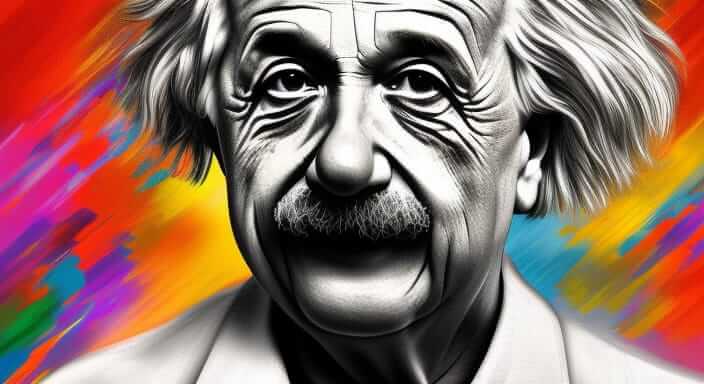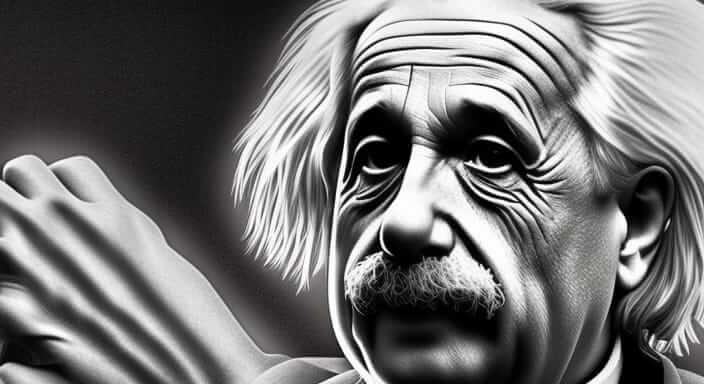Albert Einstein kimdir, ingilizce hayatı, biyografisi, çalışmaları, buluşları nelerdir? Albert Einstein hakkında ingilizce biyografi.

Early Years and Education
Albert Einstein was born on March 14, 1879, in Ulm, Germany, to a middle-class Jewish family. His early years were marked by intellectual curiosity and a passion for science. In 1896, he enrolled in the Swiss Federal Polytechnic in Zurich, where he excelled in physics and mathematics.
The Miracle Year – Theory of Relativity
In 1905, Einstein’s life took a momentous turn when he published four groundbreaking papers in the scientific community. One of these papers introduced the theory of special relativity, where he formulated the famous equation E=mc², revealing the equivalence of mass and energy. This “miracle year” marked the beginning of his scientific fame.
Career and Academic Achievements
After receiving his doctorate, Einstein embarked on a successful academic career, working as a professor in various institutions. In 1915, he completed his theory of general relativity, which described gravity as a curvature in the fabric of space-time. This revolutionary concept predicted the bending of light around massive objects, eventually confirmed by the 1919 solar eclipse experiment.
Nobel Prize and Quantum Mechanics Debate
Einstein’s groundbreaking work on the photoelectric effect earned him the Nobel Prize in Physics in 1921. However, his skepticism towards the emerging theory of quantum mechanics led to heated debates with prominent physicists like Niels Bohr. Einstein’s famous quote “God does not play dice with the universe” reflects his rejection of the probabilistic nature of quantum physics.
Political and Social Activism
In addition to his scientific pursuits, Einstein was a passionate advocate for civil rights, pacifism, and international cooperation. During the rise of Nazism in Germany, he fled to the United States in 1933, where he took up a position at the Institute for Advanced Study in Princeton, New Jersey. He used his platform to denounce racism and promote peace during World War II.
Later Life and Unified Field Theory
In his later years, Einstein tirelessly searched for a unified theory that would bring together the forces of nature into a single framework. Unfortunately, he was unable to achieve this goal, and the pursuit of a unified field theory remained one of the great unsolved problems in physics.
Legacy and Impact
Albert Einstein’s contributions to science revolutionized our understanding of the universe. His theories of relativity laid the foundation for modern physics and influenced countless scientists for generations to come. Einstein’s name became synonymous with genius, and his work continues to inspire curiosity and exploration in the realm of theoretical physics.

Passing and Immortality
Albert Einstein passed away on April 18, 1955, in Princeton, leaving behind an enduring legacy as one of the greatest scientific minds in history. His name and ideas are immortalized, not only in scientific literature but also in popular culture, where “Einstein” has become a symbol of intellectual brilliance. His life and achievements continue to inspire future generations to push the boundaries of human knowledge and understanding.
3 yorum
Daha kısa olabilir
eyw çok işime yaradı
Thank you very much